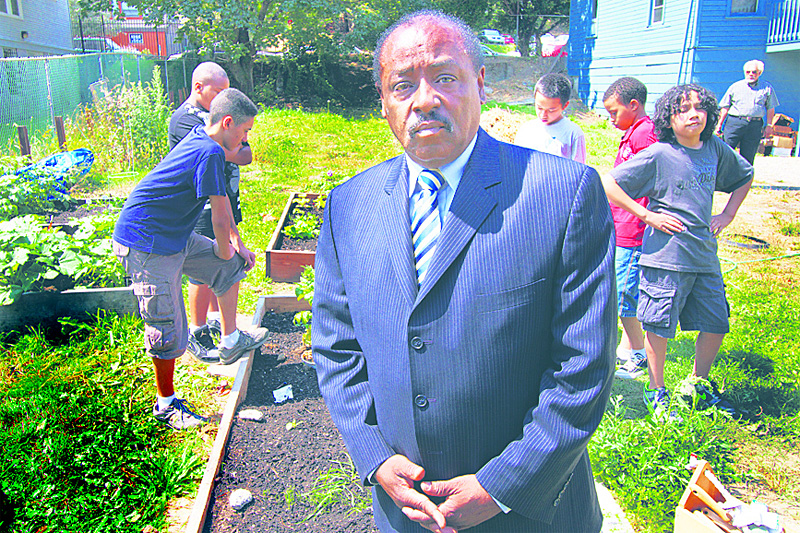Where I came from, you talk about high blood pressure and diabetes like the common cold,” says Reverend Robert Jeffrey, a New Orleans native and pastor at New Hope Baptist Church in the Central District.
In 2001, Jeffrey himself almost died from an infection caused by diverticulitis, an intestinal disease that often develops when people consume too much processed food and not enough fiber. During the four weeks Jeffrey spent in the ICU and his year-long recovery, he began to understand how diet contributed to his illness—and others’.
“That’s when I realized that bad food is killing poor people,” he says. “If I, in my relatively privileged position with access to knowledge and better food, had almost died just by living, then I know that there are poor people out there who are dying every day.”
Not quite a decade later, Jeffrey is the executive director of Clean Greens Farm and Market, a 3-year-old nonprofit whose mission is to bring fresh produce, and new food habits, to low-income people and people of color.
His organization leases a 22-acre farm in Duvall that cultivates more than 30 varieties of fruits and vegetables, then sells the produce through shares in its CSA (Community Supported Agriculture) and at a weekly farm stand in the CD.
“I’m a Southern city boy,” says Reverend Jeffrey in a slow, quiet drawl. “Farming was the last thing on my mind.” But on the first day that he and his staff, with some help from the Seattle Tilth Society, went to work in the fields in August 2007, prepping and planting six acres of land, he had a realization that he is clearly still awed by today. “I thought, ‘How did I live this long without ever participating in the earth?’ That’s part of the loss of city living. Once I discovered the earth, I discovered new possibilities.”
Though it’s leased in the name of his church, Jeffrey says the farm is owned and operated by residents of the Central District, and it relies on a volunteer staff of 87 to farm and sell the produce. “It’s amazing,” Jeffrey says, “how differences—race, gender, class—go away when you’re in the dirt, just working.”
This year, Clean Greens has an impressive 128 CSA subscriptions, up from 30 last year. The first crops were collard greens, mustard, turnips, and okra—Southern staples that Jeffrey knew would appeal to Southern-born African-Americans—but now include cucumbers, squash, melons, even tomatillos. All varieties of vegetables sell for the very affordable price of $3 a bunch. Clean Greens gives away over half the produce it grows to local food banks.
“People are locked in poverty because they’re locked in a system that doesn’t allow them a real means to get ahead,” says Jeffrey, who’s also head of the Black Dollar Days Task Force. “We need more structures—better structures. Good food should not be the domain of the elite and fast food the sustenance of the poor. Food justice will create other forms of justice.”





